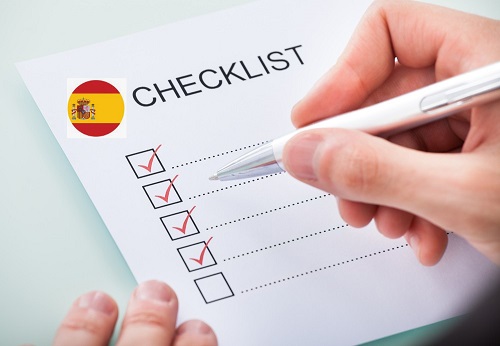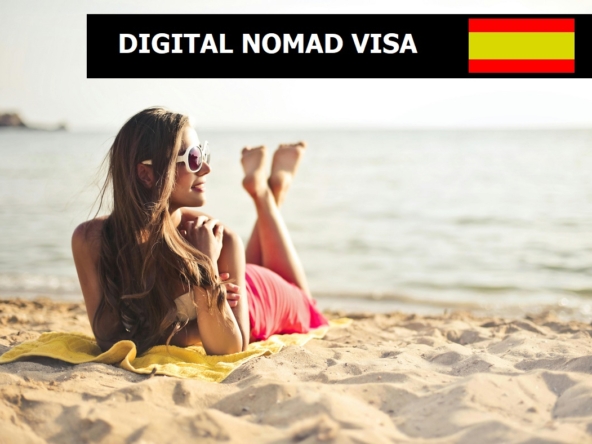Describiré aquí mi experiencia como canadiense. Obtener la Visa de Nómada Digital Española para España. Comencé a viajar mucho después de graduarme de la universidad y planté árboles en BC, Alberta y Quebec.
Sin embargo, quise viajar fuera de Canadá y terminé viviendo varios años en Ecuador y Argentina. Visité España por primera vez en 2017 y me encantó. Pude ver la conexión con América Latina y aprecié más la comida, el clima y la seguridad. Me mudé a España en 2019 a través del Programa de Auxiliares de Conversación de América del Norte. Estuve 4 años como auxiliar en 4 ciudades Vitoria, San Sebastián, Carboneras y Córdoba. En este programa gubernamental se colocan hablantes nativos de inglés en escuelas públicas (primarias, secundarias y escuelas oficiales de idiomas) en toda España.
A mediados de mi cuarto año decidí que quería quedarme en España en lugar de regresar a la tundra helada, por suerte la visa de nómada digital salió durante este año también. Hay otras visas que puedes solicitar como autónomo o como empresario, pero la DNV es la mejor para los autónomos que trabajan en línea. Durante mi etapa como auxiliar también estuve enseñando inglés online para una empresa alemana como autónomo. Esta fue mi clave para conseguir la visa. El hecho de que solo tuviera un “cliente” facilitó el proceso ya que necesitas obtener una carta de cada cliente autorizándote a trabajar desde España. También debes haber trabajado con ese cliente durante al menos un año.
Mi nivel de español es decente, así que me sentí lo suficientemente seguro como para completar la solicitud yo mismo. Hay algunos grupos de Facebook útiles que pueden ayudarte y los recomiendo encarecidamente; allí podrás encontrar excelentes consejos y respuestas a tus preguntas.
Antes de solicitar esta Visa
Tienes que ser ciudadano extracomunitario y trabajar en remoto desde España para una empresa ubicada fuera de España. También tienes que ganar al menos el doble del salario mínimo español que es de 1050 euros al mes.
Será necesario solicitar un NIE (número de identidad de extranjero) y un certificado electrónico o Cl@ve para poder acceder a la solicitud.
The website to apply is here: https://www.inclusion.gob.es/web/unidadgrandesempresas/solicitudes
Opciones al solicitar esta visa
Hay dos opciones diferentes según el tipo de profesional que seas…
- an employee that work for a company outside of Spain
- a self-employed person that works for different companies around the world. In this case you could work for a company located in Spain as long as it does not exceed 20% of your total income.
También hay dos opciones dependiendo de dónde se encuentre al momento de solicitar esta visa…
- From Spain: you get a 3-year residence permit (renewable), these years count for both Spanish nationality and permanent residence, which you can get after 5 years in Spain.
- From Cánada (or your country of origin): and get a 1-year residence permit.
Ventajas que ofrece la visa nómada digital
Algunas de las ventajas que obtendrás como canadiense al solicitar esta visa son las siguientes…
- resolution in just 20 days, and the applicable administrative silence is positive
- tax advantages: if you are not a freelancer but just work remotely for a company you will pay a flat tax rate of just 24% on your income and also you don’t need to pay wealth tax
podría incluir a su cónyuge e hijos en la solicitud de visa - Get the permanent residency after 5 years
- Travel in all the Schengen area is allowed
Los documentos necesarios para solicitar la Visa Nómada Digital
– Formulario de solicitud de visa: se puede descargar aquí
– Fotografía. una fotografía a color tamaño pasaporte y reciente (menos de 2 meses)
– Pasaporte vigente: original y fotocopia y con vigencia mínima de 1 año
– Certificado de antecedentes penales: no mayor a 6 meses
– Comprobante de residencia en el distrito consular.
– Tasa de visa: el importe a pagar es de 80€
– Seguro médico privado, con cobertura en toda España (original y copia del certificado)
– Si es autónomo, un certificado de haber trabajado durante al menos 3 meses (antes de la solicitud de visa) para una empresa extranjera.
– Si eres autónomo, contrato con esa misma empresa de al menos 1 año de duración.
– Copia del título universitario o cédula profesional que acredite que cuentas con un mínimo de 3 años de experiencia en tu carrera.
Documentos para traducir
El proceso en sí no requiere mucho tiempo, lo que lleva más tiempo es reunir los documentos y traducirlos.
Algunos documentos deben ser traducidos por un traductor certificado y son:
1) Tu contrato de trabajo
2) Prueba de que la empresa extranjera para la que trabaja existe desde hace al menos un año
3) Tu título/diploma/certificado relacionado con el trabajo que realizas
Se requiere una traducción simple de otros documentos, por lo que puedes traducir estos documentos tú mismo:
1) CV
2) Carta de su empresa autorizándole a trabajar en el extranjero
Línea de tiempo
Todo el proceso me llevó unos 5 meses. No solicité la visa hasta que terminé el año escolar, donde luego tuve 90 días para presentar la solicitud. Lo envié en junio y fue aprobado unos 30 días hábiles después.
Me dijeron que esperara respuesta en 20 días, a los 20 días presenté una solicitud de resolución favorable por silencio administrativo (puedes hacerlo en la misma página web de la solicitud inicial) y me aprobaron unos 10 días después.




